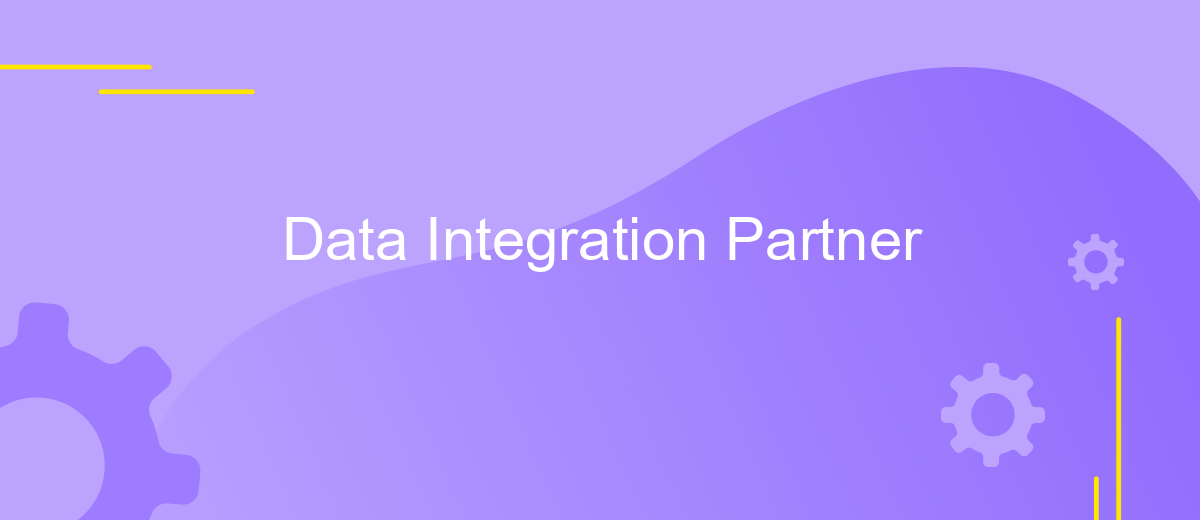Data Integration Partner
In today's data-driven world, businesses rely on seamless data integration to make informed decisions and maintain a competitive edge. Partnering with a reliable Data Integration Partner ensures that your data flows smoothly across various systems, enhancing efficiency and accuracy. This article explores the key benefits of collaborating with a Data Integration Partner and how it can transform your business operations.
Executive Summary
In today's rapidly evolving digital landscape, businesses must efficiently integrate diverse data sources to stay competitive. A Data Integration Partner provides the expertise and tools necessary to seamlessly combine disparate data systems, enabling organizations to make data-driven decisions with confidence.
- Streamlined data consolidation from multiple sources
- Enhanced data quality and consistency
- Real-time data access and analytics
- Scalable solutions tailored to business needs
- Reduced operational costs and increased efficiency
Partnering with a Data Integration expert ensures that your organization can harness the full potential of its data assets. By leveraging advanced integration technologies and methodologies, businesses can achieve a unified view of their data, driving innovation and growth. Embrace the power of data integration to transform your organization's decision-making processes and maintain a competitive edge in the market.
Introduction

In today's rapidly evolving digital landscape, businesses are increasingly reliant on seamless data integration to drive efficiency and innovation. Data integration partners play a crucial role in this context, offering expertise and solutions to ensure that disparate systems can communicate effectively. By leveraging advanced tools and technologies, these partners help organizations streamline their data flows, reduce manual efforts, and make informed decisions based on real-time insights.
One such tool that has gained prominence is ApiX-Drive, a service designed to simplify the integration process. ApiX-Drive enables businesses to connect various applications and automate data transfers without requiring extensive technical knowledge. This not only accelerates the integration timeline but also minimizes the risk of errors, ensuring that data remains consistent and accurate across platforms. By partnering with data integration experts and utilizing robust services like ApiX-Drive, companies can unlock new levels of productivity and maintain a competitive edge in the market.
Data Integration Challenges

Data integration is a critical aspect of modern business operations, yet it comes with a set of significant challenges. Organizations often struggle with the complexity of integrating data from diverse sources, each with its own format and structure. This complexity can lead to data inconsistencies and errors, which can compromise the quality and reliability of the integrated data.
- Data Silos: Different departments may use distinct systems, creating isolated data silos that are difficult to integrate.
- Data Quality: Inconsistent or inaccurate data from various sources can lead to poor decision-making.
- Scalability: As data volumes grow, ensuring that the integration processes can scale effectively becomes a challenge.
- Security: Integrating data from multiple sources increases the risk of data breaches and requires robust security measures.
- Compliance: Adhering to regulatory requirements across different jurisdictions can complicate data integration efforts.
Addressing these challenges requires a strategic approach that includes the use of advanced tools and technologies, as well as collaboration across departments. By doing so, organizations can achieve seamless data integration, leading to better insights and more informed business decisions.
Benefits of a Data Integration Partner

Collaborating with a data integration partner can significantly enhance your business operations by ensuring seamless data flow across various systems. This partnership allows companies to focus on core activities while experts handle data complexities, leading to improved efficiency and productivity.
Data integration partners bring specialized knowledge and tools that simplify the integration process, reducing the time and resources needed for implementation. They help in breaking down data silos, enabling better data accessibility and more informed decision-making.
- Streamlined data management
- Improved data accuracy and consistency
- Enhanced data security and compliance
- Cost-effective solutions
- Scalability and flexibility
By leveraging the expertise of a data integration partner, businesses can stay competitive in a data-driven market. This collaboration not only ensures the integrity of data but also provides the agility needed to adapt to evolving technological landscapes.
Conclusion
In conclusion, partnering with a reliable data integration service is crucial for businesses looking to streamline their operations and enhance data accuracy. Effective data integration not only facilitates seamless communication between various systems but also ensures that data is consistently updated and accessible. This leads to more informed decision-making and improved overall efficiency.
Services like ApiX-Drive play a pivotal role in simplifying the integration process. By offering a user-friendly interface and robust automation capabilities, ApiX-Drive enables businesses to connect disparate systems without the need for extensive technical expertise. Leveraging such tools can significantly reduce the time and resources required for integration, allowing companies to focus on their core activities and strategic goals.
FAQ
What is Data Integration?
Why is Data Integration important for businesses?
How can I automate data integration processes?
What are the common challenges in Data Integration?
How do I choose the right Data Integration partner?
Apix-Drive is a universal tool that will quickly streamline any workflow, freeing you from routine and possible financial losses. Try ApiX-Drive in action and see how useful it is for you personally. In the meantime, when you are setting up connections between systems, think about where you are investing your free time, because now you will have much more of it.

